RECHERCHE
L’incroyable capacité des bébés à apprendre leur langue maternelle
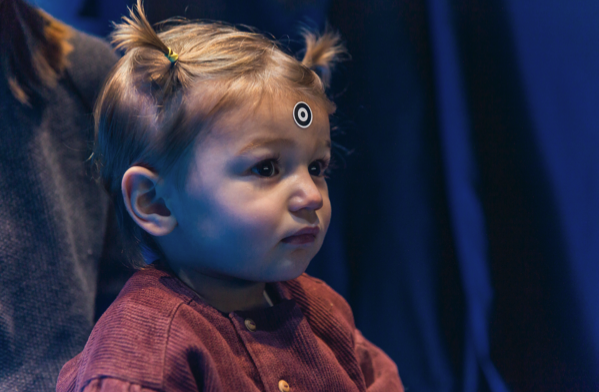
Les bébés sont de véritables éponges à information. S’ils mettent un an à se mettre debout, l'apprentissage du langage commence bien plus tôt. Mais comment font-ils pour apprendre si facilement et si rapidement leur langue maternelle ?
Une nouvelle étude publiée dans le journal scientifique Proceedings of the National Academy of Sciences, menée par Monica Barbir, Mireille Babineau, Anne-Caroline Fiévet et Anne Christophe au sein de l’équipe Le langage et son acquisition du Laboratoire de Sciences Cognitives et Psycholinguistique (LSCP), révèle que les bébés apprennent des nouvelles règles de grammaire en quelques dizaines de minutes et sont capables de les utiliser immédiatement pour apprendre de nouveaux mots. Rencontre avec Monica Barbir, première autrice de cette publication, doctorante au moment de l’étude, et Anne Christophe.
Lire l'article
Notre cerveau anticipe le sens des mots pendant l’écoute de la parole
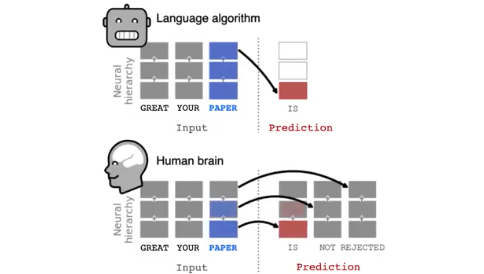
Chaque jour, nous produisons et entendons quelques dizaines de milliers de mots. Ils structurent nos échanges, et bien souvent, notre pensée. Pourtant, la façon dont le tissu neuronal réalise cette prouesse quotidienne reste largement incomprise.
Dans une étude récemment publiée dans Nature Human Behaviour, des chercheur.ses de l’INRIA et du Laboratoire des Systèmes Perceptifs à l’ENS ont montré que le cerveau humain non seulement représente et prédit chaque mot, mais anticipe également le sens qu’ils vont produire une fois combinés. Une capacité d’anticipation sémantique qui se démarque des algorithmes actuels.
Lire l'article
Apprend-on à parler de la même façon partout dans le monde ?

7 000 langues sont parlées dans le monde dans des cultures diverses. Pourtant un peu plus de la moitié des études sur l’acquisition de la langue maternelle portent sur des enfants qui apprennent une seule langue, en général l’anglais, aux États-Unis. Comment savoir, dès lors, si l'apprentissage de la langue maternelle suit un processus universel ?
Alejandrina Cristia et Lucas Gautheron au LSCP, en collaboration avec Heidi Colleran, anthropologue au Max Planck Institute for Evolutionary Anthropology ont étudié les expériences vocales des enfants de l'île de Malakula (Vanuatu) où le multilinguisme est la norme. Les résultats de leur étude publiée récemment dans la revue Developmental Science, révèlent que les enfants de l'île vocalisent à un rythme comparable à celui des enfants des populations monolingues habituellement étudiées malgré un temps de parole entendue inférieur. Ces résultats mettent en évidence l'importance d’observer des enfants de cultures diverses pour décrire le processus de développement du langage.
Lire l'article
FINANCEMENT
Laudine Carbuccia, lauréate d'une bourse de recherche pour l’enfance de la Fondation Mustela
Chercheuse en sociologie et en sciences cognitives, Laudine Carbuccia consacre sa thèse, qu'elle effectue à Sciences Po Paris et à l'ENS, aux "inégalités d’accès aux crèches en fonction du niveau socio-économique et de l’origine migratoire". En jeu : une meilleure compréhension du faible recours aux modes d’accueil de la part des familles issues de milieux défavorisés, et ses implications pour l’emploi des mères et le développement des enfants. Explications en image !
Pour en savoir plus sur les recherches de Laudine Carbuccia :
L’apport des sciences comportementales pour lutter contre les inégalités dès la petite enfance
DANS LES MÉDIAS
Que pense notre cerveau du réchauffement climatique ?

Explication avec Aurore Grandin, doctorante en sciences cognitives au Laboratoire de Neurosciences Cognitives et Computationnelles, dans l’émission La tête au carré
Ecouter

Pour réussir, le travail ne suffit pas...
Ces ingrédients du succès souvent oubliés
La chance et les prédispositions génétiques, trop souvent occultées, jouent pourtant un rôle majeur dans la réussite. Chronique de Franck Ramus, chercheur au LSCP, dans l'Express.
Lire l'article

L'art de l'ombre : comment les peintres se trompent depuis des siècles
Roberto Casati, philosophe et directeur de l'Institut Jean Nicod et Patrick Cavanagh, chercheur au Glendon College of York University à Toronto, expliquent "The Art of the Shadow : How Painters Have Gotten It Wrong for Centuries" (L'art de l'ombre : comment les peintres se sont trompés pendant des siècles), dans un article du MIT Press Reader adapté de leur livre "The Visual World of Shadows" (Le monde visuel des ombres).
Lire l'article
Peut-on être sûr.e d’avoir pris la bonne décision ?

Stefano Palminteri, chercheur en neurosciences au LNC2, tente de répondre à cette question dans le podcast Émotions.
Émotions invite les expert.es pour nous éclairer sur ce que nous ressentons.
Ecouter.
Pourquoi les mondes imaginaires sont-ils de plus en plus populaires ?
 Edgar Dubourg et Nicolas Baumard de l'Institut Jean Nicod, reviennent sur leurs travaux de recherche sur les mondes imaginaires dans The Conversation.
Edgar Dubourg et Nicolas Baumard de l'Institut Jean Nicod, reviennent sur leurs travaux de recherche sur les mondes imaginaires dans The Conversation.
Lire l'article.
Fake news, effets sur l'emploi, géopolitique : faut-il avoir peur de ChatGPT ?
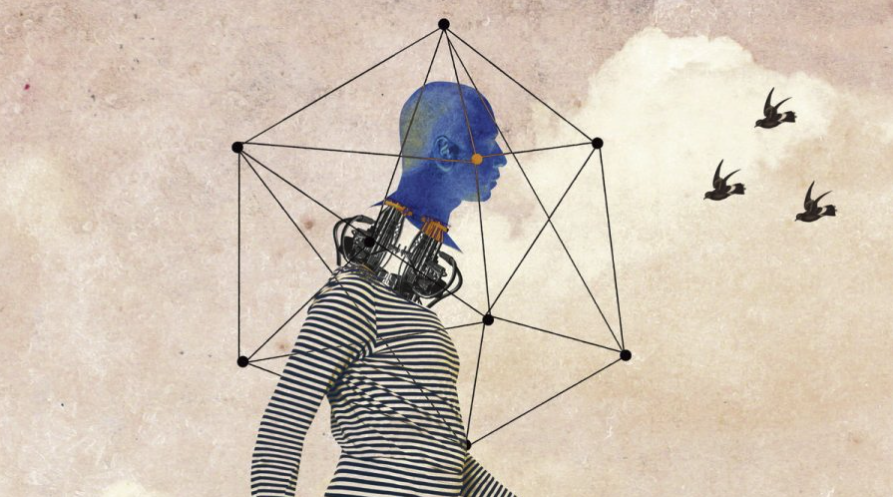
Depuis son lancement fin novembre 2022, le système d’intelligence artificielle conçu par une start-up californienne, ne cesse de faire parler de lui, suscitant admiration et méfiance, fascination et inquiétude. Pourquoi fascine-t-il autant qu’il inquiète ? Stefano Palminteri apporte son éclairage dans l'Humanité.
Lire l'article
Mémoriser pour accéder à la compréhension
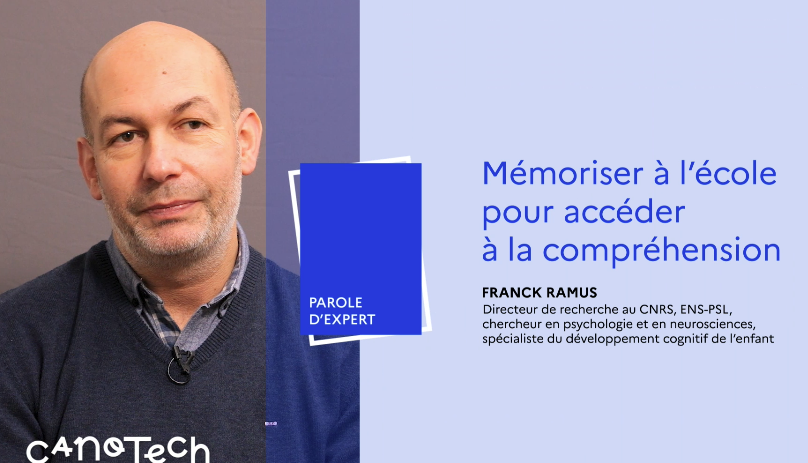
« La mémoire est au cœur de ce qui se joue à chaque instant dans la classe ». Franck Ramus, chercheur en psychologie et en neurosciences au LSCP, spécialiste du développement cognitif de l’enfant explique pourquoi la mémoire est si importante à l’école. Il évoque la nécessité de mémoriser des connaissances pour accéder à la compréhension, et les rôles que jouent les différentes formes de mémoire. Il aborde également des cas de difficultés scolaires liés à la mémorisation et à la compréhension.
Voir la vidéo
SCIENCE POUR TOUTES/TOUS
Cognition et états modifiés de conscience : les induire, les influencer, les soigner
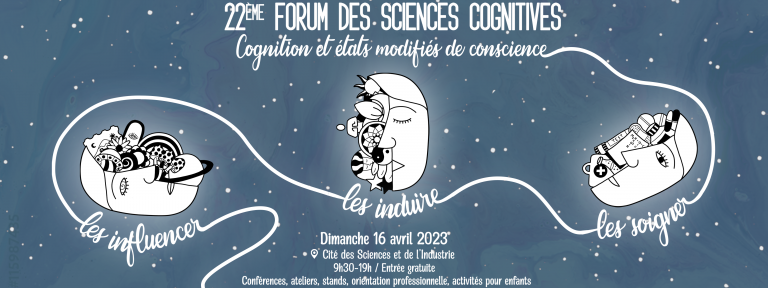
Comment les états modifiés de conscience induits par la transe, la méditation, les rêves, les expériences de mort imminentes et les psychédéliques influencent-ils notre cerveau et états de conscience ? Comment peuvent-ils participer à notre bien-être et servir d’outils en psychiatrie ? Comment peuvent-ils faire avancer la recherche fondamentale ?
Dimanche 16 avril 2023, la 22e édition du Forum des Sciences Cognitives accueillera, à la Cité des Sciences et de l'Industrie, des conférencier.ères et de nombreux.ses intervenant.es (entreprises, associations, laboratoires, étudiants, alumni, etc.) qui tenteront de répondre à ces questions, de manière scientifique et accessible au grand public.
Cet événement est aussi l’occasion, pour les lycéen.nes et jeunes étudiant.es, de découvrir la diversité des formations et débouchés professionnels dans le domaine des sciences cognitives.
Le Forum des Sciences Cognitives est organisé par l'association Cognivence. Le DEC compte parmi les parrains du forum.
Programme détaillé et inscription (gratuite) recommandée.
.
QUELQUES PUBLICATIONS RÉCENTES
Jean-Baptiste André, Mikaël Cozic, Silvia de Monte, Jean Gayon, Philippe Huneman, et al. (2023). From Evolutionary Biology to Economics and Back: Parallels and Crossings between Economics and Evolu- tion. Springer International Publishing. History, Philosophy and Theory of the Life Sciences, 978-3-031-08790-5.doi:10.1007/978-3-031-08790-5
Résumé :
This book offers a comprehensive exploration of the major key concepts common to economics and evolutionary biology. Written by a group of philosophers of science, biologists and economists, it proposes analyses of the meaning of twenty-five concepts from the viewpoint respectively of economics and of evolutionary biology –each followed by a short synthesis emphasizing major discrepancies and commonalities. This analysis is surrounded by chapters exploring the nature of the analogy that connects evolution and economics, and chapters that summarize the major teachings of the analyses of the keywords. Most scholars in biology and in economics know that their science has something in common with the other one, for instance the notions of competition and resources. Textbooks regularly acknowledge that the two fields share some history – Darwin borrowing from Malthus the insistence on scarcity of resources, and then behavioral ecologists adapting and transforming game theory into evolutionary game theory in the 1980s, while Friedman famously alluded to a Darwinian process yielding the extant firms. However, the real extent of the similarities, the reasons why they are so close, and the limits and even the nature of the analogy connecting economics and biological evolution, remain inexplicit. This book proposes basis analyses that can sustain such explication. It is intended for researchers, grad students and master students in evolutionary and in economics, as well as in philosophy of science.
Charlotte Caucheteux, Alexandre Gramfort & Jean-Rémi King (2023). Evidence of a predictive coding hierarchy in the human brain listening to speech. Nat Hum Behav. doi:10.1038/s41562-022-01516-2
Résumé :
Considerable progress has recently been made in natural language processing: deep learning algorithms are increasingly able to generate, summarize, translate and classify texts. Yet, these language models still fail to match the language abilities of humans. Predictive coding theory offers a tentative explanation to this discrepancy: while language models are optimized to predict nearby words, the human brain would continuously predict a hierarchy of representations that spans multiple timescales. To test this hypothesis, we analysed the functional magnetic resonance imaging brain signals of 304 participants listening to short stories. First, we confirmed that the activations of modern language models linearly map onto the brain responses to speech. Second, we showed that enhancing these algorithms with predictions that span multiple timescales improves this brain mapping. Finally, we showed that these predictions are organized hierarchically: frontoparietal cortices predict higher-level, longer-range and more contextual representations than temporal cortices. Overall, these results strengthen the role of hierarchical predictive coding in language processing and illustrate how the synergy between neuroscience and artificial intelligence can unravel the computational bases of human cognition.
Emmanuel Chemla, Isabelle Charnavel, Isabelle Dautriche, David Embick, Fred Lerdahl, Pritty Patel-Grosz, David Poeppel, Philippe Schlenker (2023). Formal Models at the Core. Cognitive Science, Volume47, Issue3, e13267, doi:10.1111/cogs.13267
Résumé :
The grammatical paradigm used to be a model for entire areas of cognitive science. Its primary tenet was that theories are axiomatic-like systems. A secondary tenet was that their predictions should be tested quickly and in great detail with introspective judgments. While the grammatical paradigm now often seems passé, we argue that in fact it continues to be as efficient as ever. Formal models are essential because they are explicit, highly predictive, and typically modular. They make numerous critical predictions, which must be tested efficiently; introspective judgments do just this. We further argue that the grammatical paradigm continues to be fruitful. Within linguistics, implicature theory is a recent example, with a combination of formal explicitness, modularity, and interaction with experimental work. Beyond traditional linguistics, the grammatical paradigm has proven fruitful in the study of gestures and emojis; literature (“Free Indirect Discourse”); picture semantics and comics; music and dance cognition; and even reasoning and concepts. We argue, however, that the grammatical paradigm must be adapted to contemporary cognitive science. Computational methods are essential to derive quantitative predictions from formal models (Bayesian pragmatics is an example). And data collection techniques offer an ever richer continuum of options, from introspective judgments to large-scale experiments, which makes it possible to optimize the cost/benefit ratio of the empirical methods that are chosen to test theories.
Amelia Godber, & Gloria Origgi (2023). Telling Propaganda from Legitimate Political Persuasion. Episteme, 1-20. doi:10.1017/epi.2023.10
Résumé :
How does propaganda differ from the legitimate persuasive practices that animate a healthy democracy? The question is especially salient as digital technologies facilitate new modes of political persuasion and the public square saturates with information factual and fabricated alike. In answer, we propose a typology based on the rhetorical strategies that propaganda and its legitimate counterpart each employ. We argue that the point of contrast between the phenomena turns on two key features: whether the rhetorical strategy sufficiently engages our deliberative capacities, and whether it runs counter to our epistemic interests. While in practice the boundary between the concepts is not always sharp, the account identifies a set of conceptual tools that help better frame and come to grips with propaganda and legitimate political persuasion in an information-dense and increasingly complex media landscape.
Mia Karabegovic, Hugo Mercier (2023). The Reputational Benefits of Intellectual Humility. Rev.Phil.Psych. doi:10.1007/s13164-023-00679-9
Résumé :
Much work on intellectual humility has focused on its epistemic benefits. We suggest that displaying (or failing to display) intellectual humility also has effects on how others perceive us and that, as a result, intellectual humility can serve reputation management purposes, in at least four ways: (i) Intellectual humility can be used to signal we are a good source of information; (ii) Intellectual humility can be used to signal we are competent through countersignaling; (iii) Intellectual humility can be used to make sure others do not believe we are overclaiming superiority; (iv) lack of intellectual humility (or intellectual arrogance) can be used to signal dominance. The evidence suggests that intellectual humility (or lack thereof) can have each of these effects. Seeing intellectual humility as (inter alia) a reputation management tool predicts that people will be more or less likely to display intellectual humility in some contexts. For instance, people in a position of power might stand to lose less if they fail to be intellectual humble; accordingly, evidence suggests that they tend to display less intellectual humility. In conclusion, we speculate that understanding intellectual humility as reputation management could help construct environments more conducive to displays of intellectual humility.
Manuel Molano-Mazón, Yuxiu Shao, Daniel Duque, Guangyu Robert Yang, Srdjan Ostojic, Jaime de la Rocha (2023). Recurrent networks endowed with structural priors explain suboptimal animal behavior, Current Biology, ISSN 0960-9822. doi:10.1016/j.cub.2022.12.044.
Résumé :
The strategies found by animals facing a new task are determined both by individual experience and by structural priors evolved to leverage the statistics of natural environments. Rats quickly learn to capitalize on the trial sequence correlations of two-alternative forced choice (2AFC) tasks after correct trials but consistently deviate from optimal behavior after error trials. To understand this outcome-dependent gating, we first show that recurrent neural networks (RNNs) trained in the same 2AFC task outperform rats as they can readily learn to use across-trial information both after correct and error trials. We hypothesize that, although RNNs can optimize their behavior in the 2AFC task without any a priori restrictions, rats’ strategy is constrained by a structural prior adapted to a natural environment in which rewarded and non-rewarded actions provide largely asymmetric information. When pre-training RNNs in a more ecological task with more than two possible choices, networks develop a strategy by which they gate off the across-trial evidence after errors, mimicking rats’ behavior. Population analyses show that the pre-trained networks form an accurate representation of the sequence statistics independently of the outcome in the previous trial. After error trials, gating is implemented by a change in the network dynamics that temporarily decouple the categorization of the stimulus from the across-trial accumulated evidence. Our results suggest that the rats’ suboptimal behavior reflects the influence of a structural prior that reacts to errors by isolating the network decision dynamics from the context, ultimately constraining the performance in a 2AFC laboratory task.
Philippe Schlenker, Camille Coye, Maël Leroux, Emmanuel Chemla (2023). The ABC-D of animal linguistics: are syntax and compositionality for real?. Biological Reviews of the Cambridge Philosophical Society. doi:10.1111/brv.12944. PMID: 36960599.
Résumé :
In several animal species, an alarm call (e.g. ABC notes in the Japanese tit Parus minor) can be immediately followed by a recruitment call (e.g. D notes) to yield a complex call that triggers a third behaviour, namely mobbing. This has been taken to be an argument for animal syntax and compositionality (i.e. the property by which the meaning of a complex expression depends on the meaning of its parts and the way they are put together). Several additional discoveries were made across species. First, in some cases, animals respond with mobbing to the order alarm-recruitment but not to the order recruitment-alarm. Second, animals sometimes respond similarly to functionally analogous heterospecific calls they have never heard before, and/or to artificial hybrid sequences made of conspecific and heterospecific calls in the same order, thus adding an argument for the productivity of the relevant rules. We consider the details of these arguments for animal syntax and compositionality and argue that, with one important exception (Japanese tit ABC-D sequences), they currently remain ambiguous: there are reasonable alternatives on which each call is a separate utterance and is interpreted as such ('trivial compositionality'). More generally, we propose that future studies should argue for animal syntax and compositionality by explicitly pitting the target theory against two deflationary analyses: the 'only one expression' hypothesis posits that there is no combination in the first place, for example just a simplex ABCD call; while the 'separate utterances' hypothesis posits that there are separate expressions (e.g. ABC and D), but that they form separate utterances and are neither syntactically nor semantically combined.
Henri Vandendriessche, Stefano Palminteri (2023). Neurocognitive biases from the lab to real life. Commun Biol. 6, 158. doi:10.1038/s42003-023-04544-4
Résumé :
Behavioral results suggest that learning by trial-and-error (i.e., reinforcement learning) relies on a teaching signal, the prediction error, which quantifies the difference between the obtained and the expected reward. Evidence suggests that distinct cortico-striatal circuits are recruited to encode better-than-expected (positive prediction error) and worst-than-expected (negative prediction error) outcomes. A recent study by Villano et al.1 provides evidence for differential networks that underlie learning from positive and negative prediction errors in humans using real-life behavioral data. More specifically, they found that university students are more likely to update beliefs concerning grade expectations following positive rather than negative prediction errors.
Frédérique de Vignemont (2023). Désenchanter le corps. Odile Jacob.
Résumé :
Cet ouvrage se propose d’explorer les subtilités qui tissent notre conscience de soi corporelle.
Chaque époque se crée ses propres mythes, et la nôtre a érigé le corps en héros, lieu du bien-être physique et mental, ou entité soluble à volonté dans le monde virtuel. Avec l’appui des sciences cognitives, la philosophe cherche à montrer la fragilité de cette illusion de toute-puissance sur notre propre corps.
Mais le corps est aussi le moyen qui nous permet d’inter-
agir avec les personnes et les objets qui nous entourent. Ce livre illustre ce tiraillement entre deux forces opposées, celle qui nous fait rester loin du monde et celle qui nous fait dialoguer avec lui.
Un essai qui démythifie le corps pour essayer de cerner cette relation si singulière entre le sujet pensant et le corps, entre le moi, les autres et le monde.
AGENDA
Agenda des événements du DEC
Retrouvez tous les événements organisés par le DEC dans l'agenda du département.
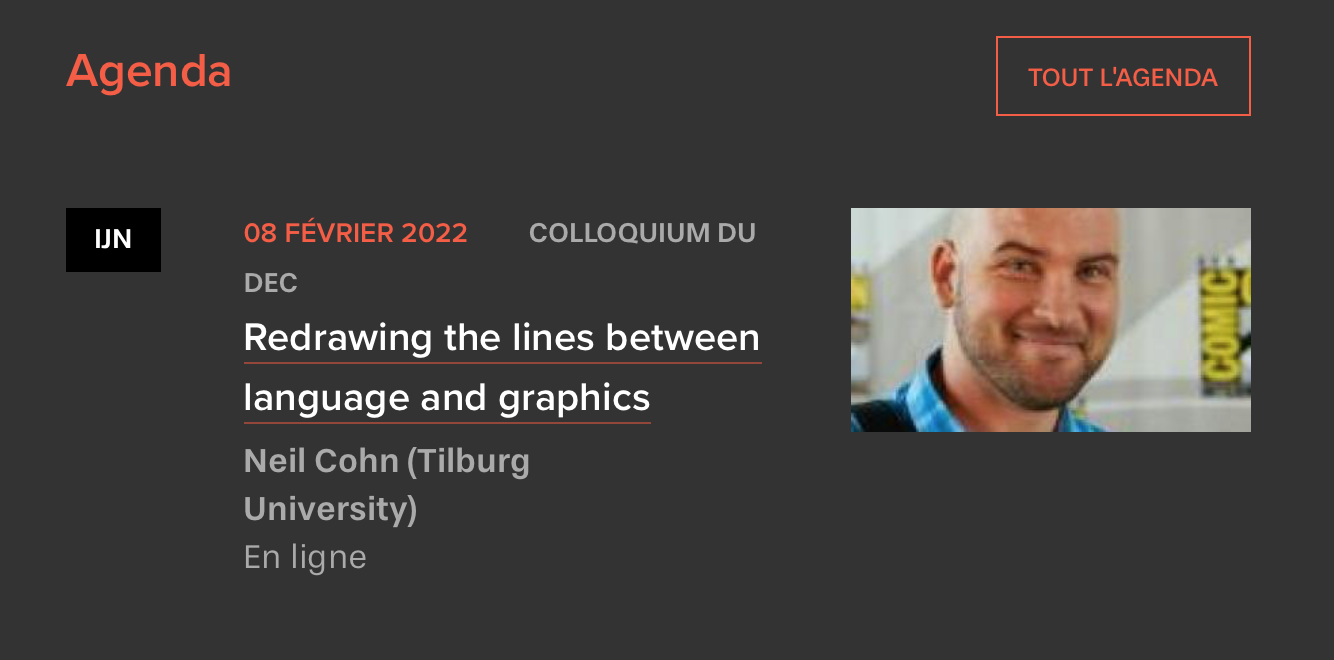
Un grand nombre de séminaires et de conférences données par les chercheur.ses du DEC ou par nos invité.e.s sont accessibles sur la chaîne youtube du département, le site des Savoirs de l'ENS, la chaîne youtube de l'école.
